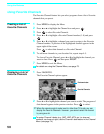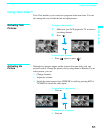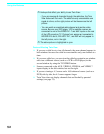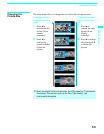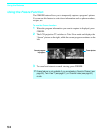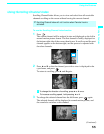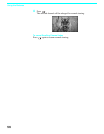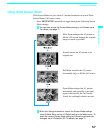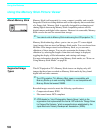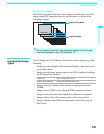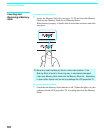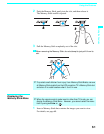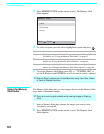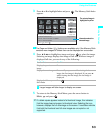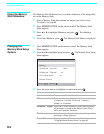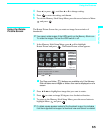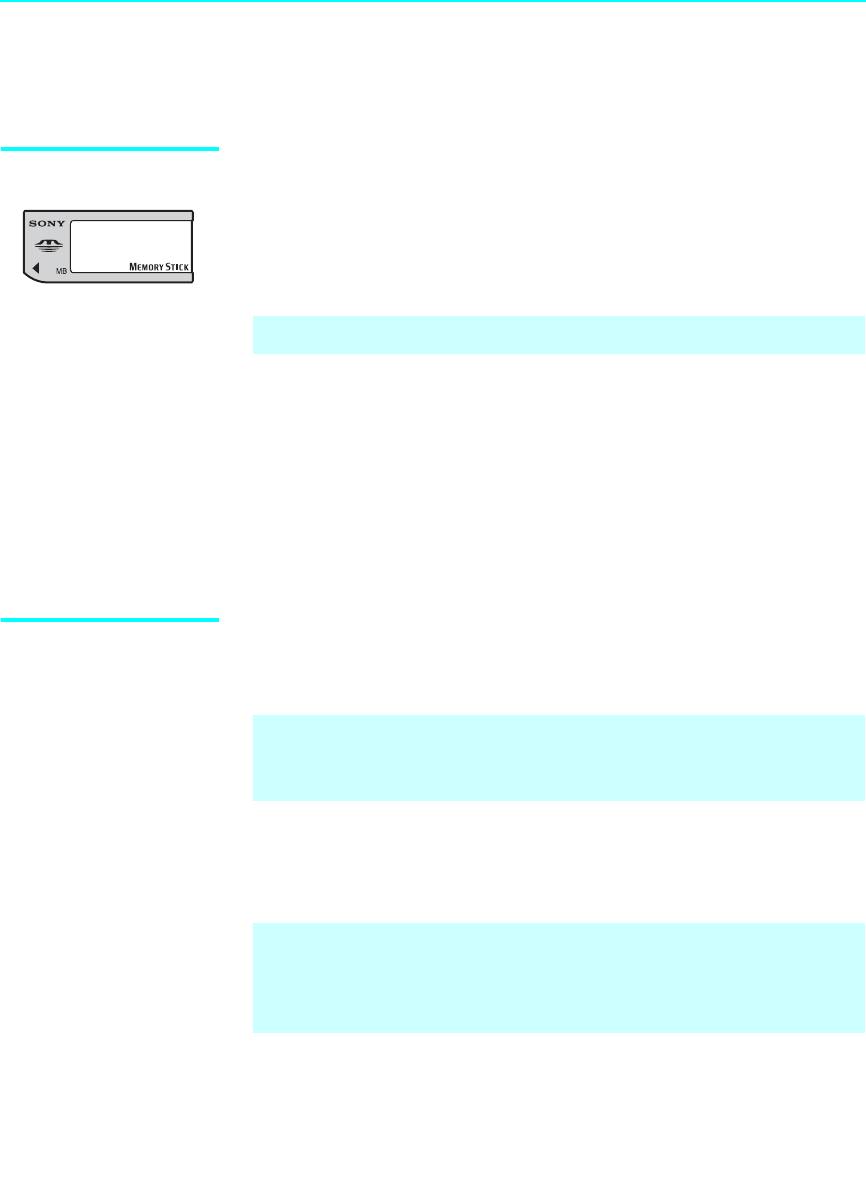
Using the Features
58
Using the Memory Stick Picture Viewer
About Memory Stick
Memory Stick (sold separately) is a new, compact, portable, and versatile
Integrated Circuit recording medium with a data capacity that exceeds that
of a floppy disk. Memory Stick is specially designed for exchanging and
sharing digital data among Memory Stick compatible products such as
digital cameras and digital video cameras. Because it is removable, Memory
Stick can also be used for external data storage.
Memory Stick technology allows you to view on your TV screen digital
(jpeg) images that are stored on Memory Stick media. You can choose from
an index of the images stored on the Memory Stick, or you can run a
slideshow of those images. You can also customize the features of the
slideshow by selecting the length of time that each image is displayed,
toggling the display of file information, and rotating each image.
For more information about the using Memory Stick media, see “Notes on
Using Memory Stick Media” on page 86.
Supported Image
Types
This LCD projection TV's Memory Stick viewer can display only still
images that have been recorded on Memory Stick media by Sony brand
digital still and video cameras.
Recorded images must also meet the following specifications:
❑
Compression format: JPEG
❑
File name format: DCF compliant
✍
You cannot write to Memory Stick media using the LCD projection TV.
✍
The LCD projection TV's Memory Stick viewer is compatible with
Memory Sticks up to and including 128MB It is not compatible with
Memory Sticks that exceed 128MB.
✍
JPEG stands for "Joint Photographic Experts Group," which is the
organization that implemented this format. DCF stands for "Design Rules
for Camera File Systems," which are specifications established by the
Japan Electronic Industry Development Association (JEIDA).



